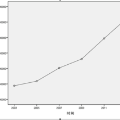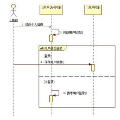Sequential recommendation aims at understanding user preference by capturing successive behavior correlations, which are usually represented as the item purchasing sequences based on their past interactions. Existing efforts generally predict the next item via modeling the sequential patterns. Despite effectiveness, there exist two natural deficiencies: (i) user preference is dynamic in nature, and the evolution of collaborative signals is often ignored; and (ii) the observed interactions are often irregularly-sampled, while existing methods model item transitions assuming uniform intervals. Thus, how to effectively model and predict the underlying dynamics for user preference becomes a critical research problem. To tackle the above challenges, in this paper, we focus on continuous-time sequential recommendation and propose a principled graph ordinary differential equation framework named GDERec. Technically, GDERec is characterized by an autoregressive graph ordinary differential equation consisting of two components, which are parameterized by two tailored graph neural networks (GNNs) respectively to capture user preference from the perspective of hybrid dynamical systems. The two customized GNNs are trained alternately in an autoregressive manner to track the evolution of the underlying system from irregular observations, and thus learn effective representations of users and items beneficial to the sequential recommendation. Extensive experiments on five benchmark datasets demonstrate the superiority of our model over various state-of-the-art recommendation methods.
翻译:顺序推荐旨在通过捕获连续行为相关性来理解用户偏好,通常基于其过去的交互表示为物品购买序列。现有方法通常通过建模顺序模式来预测下一个物品。尽管有效,但存在两个自然缺陷:(i)用户偏好是动态的,而合作信号的演变经常被忽略;(ii)观察到的交互通常是不规则采样的,而现有方法对于假设均匀间隔的项转换进行建模。因此,如何有效地建模和预测用户偏好的基础动态变得至关重要。为了解决以上挑战,本文聚焦于连续时间序列推荐,并提出了一种名为GDERec的基于图形ODE的有理推理框架。从技术上讲,GDERec特点是由一个自回归图形ODE构成,由两个定制化的图神经网络(GNNs)分别进行参数化,以从混合动态系统角度捕获用户偏好。两个定制化的GNN将被交替培训,以自回归方式跟踪从不规则观察到推荐系统的演变,并因此学习对于顺序推荐有益的用户和物品表示。在五个基准数据集上进行的大量实验证明了我们的模型优于各种最先进的推荐方法。


